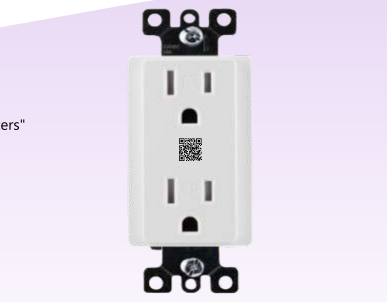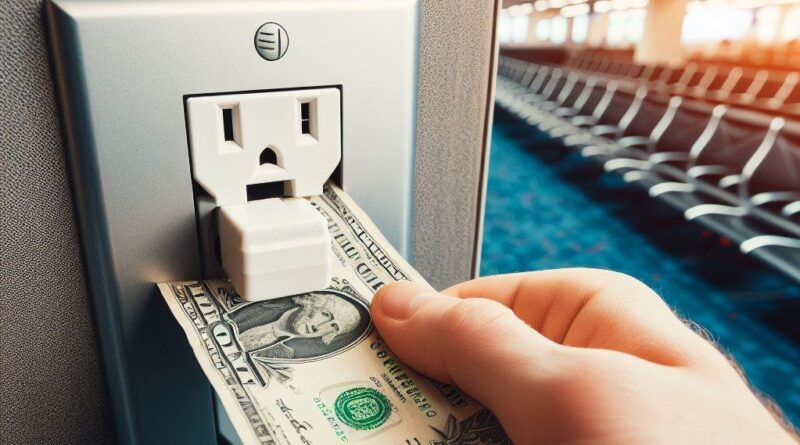Charge Your Phone at the Airport? You Could Soon Have to Pay for That.
Back in the day, Wi-Fi at airports was largely a paid service, but now nearly every major airport offers some form of free Wi-Fi to all travelers. Now it seems we’re seeing the exact opposite phenomenon with power outlets in airports, with reports on Reddit suggesting that Memphis International Airport (MEM) is trialing monetization of power outlets with Japanese startup company Vidergy Networks. Yes, seriously.
Vidergy describes itself on LinkedIn as a “trailblazing advertising technology company that is disrupting the energy and adtech industry.” Their payment-based “energy exchange platform” aims to monetize previously-free public power outlets in high-traffic locations like airports, malls, cafes, hotels, and other venues. Translation: “We’re a startup focused on finding new ways to force captive audiences with few or no alternatives to pay for convenience.”
The implementation at MEM appears to involve scanning a QR code on or near the outlet to access a web portal, where travelers can watch a video advertisement to activate the outlet for just 15 minutes, or purchase a ChargePass for 60 minutes. The cost of the ChargePass at MEM is unclear, but after doing a little research, it appears Vidergy intends to charge roughly $2 USD for 60 minutes of charging based on my research. It’s also unclear what options you’ll have after your 15 minutes of “free” charging from watching the advertisement expires. Will you be able to simply watch another advertisement to renew your charging session for another 15 minutes? Or will you be asked to pay up at that point? I imagine if there is such a restriction, given that (unlike a public Wi-Fi network) the outlet wouldn’t know your device’s MAC address, I’m betting it would be easily defeated with a private/incognito browsing session.

It’s uncertain if this is every outlet in the terminal at MEM, or just select outlets. One has to wonder – does the cleaning crew have to enter a promo code to plug in their vacuum cleaners? This trend is troubling, indicating a race to the bottom of nickeling and diming travelers at every turn. What if your phone is completely dead, and you have no way of scanning the QR code and entering your payment details? Will you have to beg a stranger in the terminal to watch an advertisement on your behalf?
Vidergy is also a startup, and my research suggests they don’t even have 10 employees. Startups are known for taking a “go fast and break things” approach to engineering, and aren’t exactly renowned for adhering to engineering best practices. What happens when their systems go down, perhaps due to a bad change being pushed to production? Does that just mean nobody in the terminal will be able to charge at any price? Will we start seeing a trend of rogue passengers unplugging equipment at gates just to charge their phones?

The QR code-based setup could also open up passengers to quishing attacks, skimming their credit card details virtually through fake Vidergy portals. Juice jacking is a big enough issue at airports (and is why you should always use your own AC adapter, not public USB plugs), and this could just add one more layer of security issues with public outlets.
The only silver lining I could maybe see here is that it may encourage airports with limited outlets to expand their charging options (MAF, I’m looking at you). However, the best course of action is never to assume there will be outlets available and always have your own alternative power source, such as a portable power bank. Even if you’re flying an airline with outlets at every seat, there is no guarantee the outlet won’t be INOP, or the prongs won’t be so loose as to allow your adapter to slide out (this is why I always fly with my UK plug adapter, even when flying domestically).
In the future, we might see “free charging” advertised as a perk of airport lounges, just as free Wi-Fi was a heavily-advertised perk back in the day. Let’s hope that’s not what our future holds.

